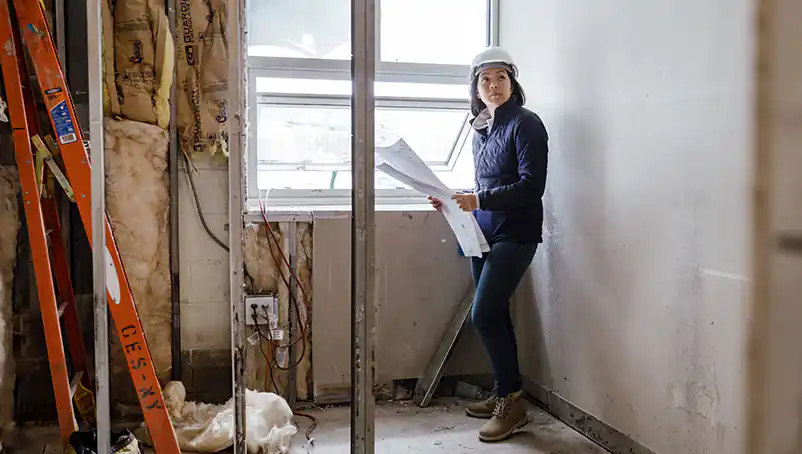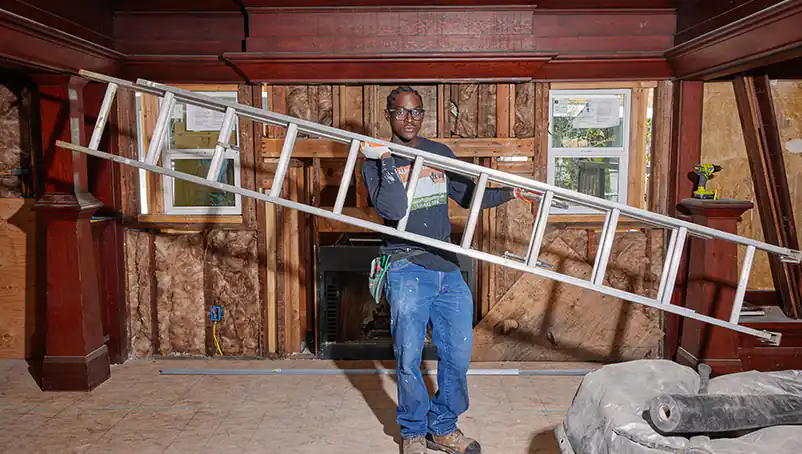What is a general contractor?
First, some basics; a contractor is anyone who works on a job-to-job basis instead of working for a single company. Contractors have to manage their own taxes, business insurance and retirement accounts.
In construction, a general contractor (GC) is someone hired to be in charge of a project. That means dealing directly with the client, managing other workers, placing orders with vendors and getting approvals from officials.
Do you need a license to be a general contractor?
Most states have general contractor license requirements, although many states don’t require a license for smaller jobs. Check with your local licensing board or office for requirements and the licensing process.
To get a general contractor license, you’ll typically need to demonstrate years of work experience and pass an exam. These exams vary by state but usually cover legal, financial and safety regulations and professional topics like construction materials, HVAC and plumbing.
You’ll also need the right general contractor insurance, which is required to get a license in many states (Typically general liability insurance.) Many clients may also want to see your proof of coverage before they’ll work with you. Insurance helps to protect you against accidents or unexpected events that could have a huge financial impact on your business.
Are there courses that can prepare me to become a general contractor?
Many construction industry associations provide training courses for becoming a GC. For example, you can enroll in a program like the Building Trades Academy, run by the North America’s Building Trades Unions (NABTU), or a course by the Associated General Contractors of America (AGC).
These courses give you the practical knowledge to manage a construction project, including design, safety and building codes, construction materials, inspection procedures, cost estimation and even labor law.
Another option is to pursue a bachelor’s or master’s degree in construction management. A construction management degree — which typically combines structural engineering and business management training — can help you become a GC or open the door to construction leadership opportunities.
Keep in mind that in most states, a degree or educational certificate isn’t enough to meet the licensing requirements to be a general contractor. You’ll still need hands-on experience.
What kind of work experience do I need to become a general contractor?
The requirements for a general contractor license will depend on your state, but you’re expected to have a few years of professional experience in construction and a solid understanding of the different trades involved.
Many general contractors begin as carpenters, though some may start in other trades as plumbers, electricians or HVAC technicians.
The paths to master different trades will vary but typically involve a combination of training courses and supervised work experience, often through an apprenticeship. Many unions or professional organizations sponsor apprenticeships, which can last as long as four years.
It’s also possible to gain professional experience requirements in construction without a formal training program, though this can be more challenging. This usually requires finding a company with a supportive crew willing to take you on as a “helper” doing odd jobs before introducing you to more complex tasks.
Even when you’re training, carrying your own business insurance is a good idea. As an apprentice, subcontractor, helper or have a side hustle contracting business, you may not always be covered by the insurance of a contractor who hires you — and mistakes happen.






